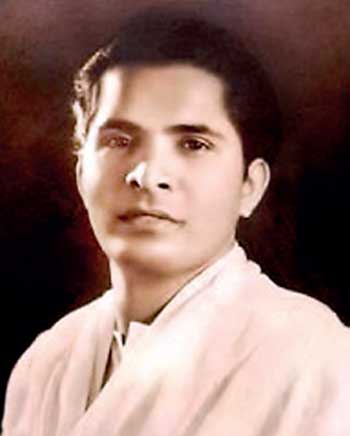Reply To:
Name - Reply Comment
Last Updated : 2024-04-25 06:31:00
 head, indeed is a fascinating experience. This Immortal classic, ‘Kokilayange Kokilanaade…’(The Cuckoo Bird’s Song) certainly, one with the legendary touches is an enchanting, symphonically rhymed magical piece of music. The scintillating singing by Sunil and fabulous and exquisite lyrics, ‘Samanmalaknel-a mage biso-ge…hisegasa - anna mage vinodhe…’, it captures everything that is beautiful...absolutely wonderful!
head, indeed is a fascinating experience. This Immortal classic, ‘Kokilayange Kokilanaade…’(The Cuckoo Bird’s Song) certainly, one with the legendary touches is an enchanting, symphonically rhymed magical piece of music. The scintillating singing by Sunil and fabulous and exquisite lyrics, ‘Samanmalaknel-a mage biso-ge…hisegasa - anna mage vinodhe…’, it captures everything that is beautiful...absolutely wonderful! Lucknow’s Bhathkanda University of Musicology and returned to Sri Lanka in 1952 and shunned his English name, Joseph John and adapted Sunil Santha.
Lucknow’s Bhathkanda University of Musicology and returned to Sri Lanka in 1952 and shunned his English name, Joseph John and adapted Sunil Santha.ratanapala Sunday, 12 April 2015 04:45 AM
He also tried to make Christian Psalms the basis of nascent Sinhala Music.
sku Sunday, 12 April 2015 09:55 AM
thank you for this very informative tribute to a national treasure of Sri Lanka,his songs are timeless.
M Peiris Monday, 13 April 2015 08:38 AM
Fantastic tribute to the legendary musician /producer thank you.

Add comment
Comments will be edited (grammar, spelling and slang) and authorized at the discretion of Daily Mirror online. The website also has the right not to publish selected comments.
Reply To:
Name - Reply Comment
US authorities are currently reviewing the manifest of every cargo aboard MV
On March 26, a couple arriving from Thailand was arrested with 88 live animal
According to villagers from Naula-Moragolla out of 105 families 80 can afford
Is the situation in Sri Lanka so grim that locals harbour hope that they coul